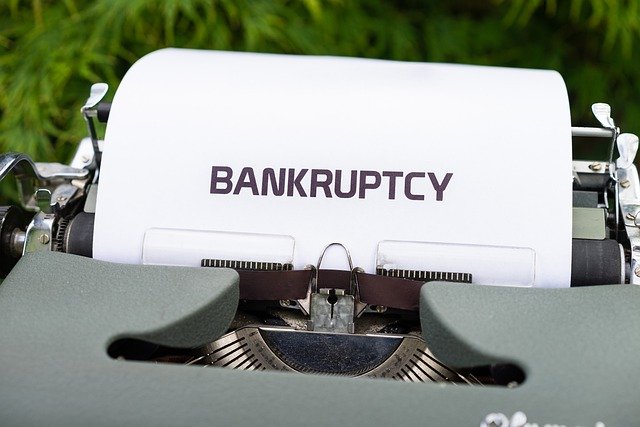Heavy debt can make individuals and businesses alike feel like they are drowning. Bankruptcy is a legal process that allows those suffering from an impossible debt load wipe out their obligation to repay debt. Although federal law establishes bankruptcy relief options, each state can pass laws identifying property that is exempt from attachment or sale in bankruptcy. Understanding the bankruptcy process in WV—with help from an attorney who can help you through that process—is the first step on the road to financial recovery.
How the Bankruptcy Process in WV Works

In general, the process involves asking your regional bankruptcy court to excuse you from your obligation to pay money you owe to creditors. Bankruptcy allows you to discharge (eliminate liability for) or reorganize (in the case of a company) many of your debts and also to keep some of your property.
In southern West Virginia, you begin bankruptcy proceedings by filing a chapter 7 bankruptcy petition in the United States Bankruptcy Court for the Southern District of West Virginia. In the petition, you must list all of your debts and all of your property. West Virginia law provides for certain exemptions, assets that are not subject to sale in the bankruptcy action. The exemptions include $35,000 in real property or personal property in equity, household items, or a combination of both.
Usually, during the bankruptcy process in WV, property is not sold. However, there is an exception if you own more property than the exemptions allowed. If any of your property is sold, the money generated from the sale will be used to pay down your debts.
Determining Whether Bankruptcy Is Right for You
Determining whether bankruptcy is right for you requires understanding how bankruptcy works in WV. Individual bankruptcy filers must complete pre-bankruptcy credit counseling before filing for bankruptcy relief. Once you begin the bankruptcy process in WV, there will be an automatic stay on all debt collection. A creditor can, however, request that the automatic stay be lifted so that debt collection can resume.
Some Debts Survive Even Bankruptcy Proceedings
While the purpose of bankruptcy is to eliminate your liability or a debt, there are some debts that cannot be discharged:
- Taxes if you filed no return or for which the return you filed was fraudulent;
- Child support or spousal support;
- Fines and court-ordered restitution;
- Debts based on fraud;
- Debts from wrongful and harmful acts;
- Loans from your pension plan; and
- Student loans, unless you can show extreme hardship, which is extremely difficult to prove in West Virginia.
You also cannot discharge credit card charges for more than $550 for luxury goods or services purchased within the last 90 days before you filed for bankruptcy. As a result, it is a good idea to not use credit cards for at least 90 days before you begin the bankruptcy process in WV.
Help with Bankruptcy in Southern WV
The advice of a bankruptcy lawyer who can help you figure out how bankruptcy works in WV is critical before you begin the bankruptcy process. A bankruptcy lawyer can help you in a variety of ways:
- Advise you whether or not you are eligible for chapter 7 bankruptcy relief;
- Review your debts and assess which can be discharged;
- Figure out which property you can keep;
- Figure out your tax consequences; and
- Assist with the filing of bankruptcy forms and representation in bankruptcy court.
There is no minimum debt you have to have to file for bankruptcy, but it would be a good idea to consult with an attorney who can evaluate your financial situation before you begin.
Navigating the Bankruptcy Process in WV
When you file for bankruptcy in southern West Virginia, you will be required to go to court once or twice. The first time is for the first meeting of creditors, when you will be asked about your income and property. If a second court appearance is required, it would be for the discharge hearing, where the court explains the terms of your discharge.
Once you’ve gone through the bankruptcy process, that fact can appear on your credit report for ten years. This may seem worrisome, but it is likely that you already had a bad credit report if you had to file for bankruptcy in the first place. Bankruptcy gets rid of much of your debt, so you can start from scratch and try to pay your current bills.
Concluding the Bankruptcy Process in WV
At the end of the bankruptcy process but before discharge, you will need to take pre-discharge debtor education courses. This will help you learn how to spend responsibly and cut your costs so that you don’t have to file for bankruptcy again. Once you have received a bankruptcy discharge, you are released from personal liability for identified debts, which means you don’t have to pay those debts.
Once a debt is discharged, the affected creditor cannot contact you to collect the outstanding debt. This is a big relief and will hopefully allow you to get back on your feet financially. However, a creditor who believes you obtained your bankruptcy discharge through fraud may ask the court to revoke your discharge. If the discharge is revoked, you would then be liable for your debts. The bankruptcy process is complicated. You need a bankruptcy attorney’s guidance so that you don’t lose more income and property than is necessary. If you are thinking of filing for bankruptcy, Jason Harwood at Harwood Legal, PLLC will walk you through the bankruptcy process in WV and see you through to the end. For an appointment with Jason, call 304-752-5015 or complete the online contact form.
